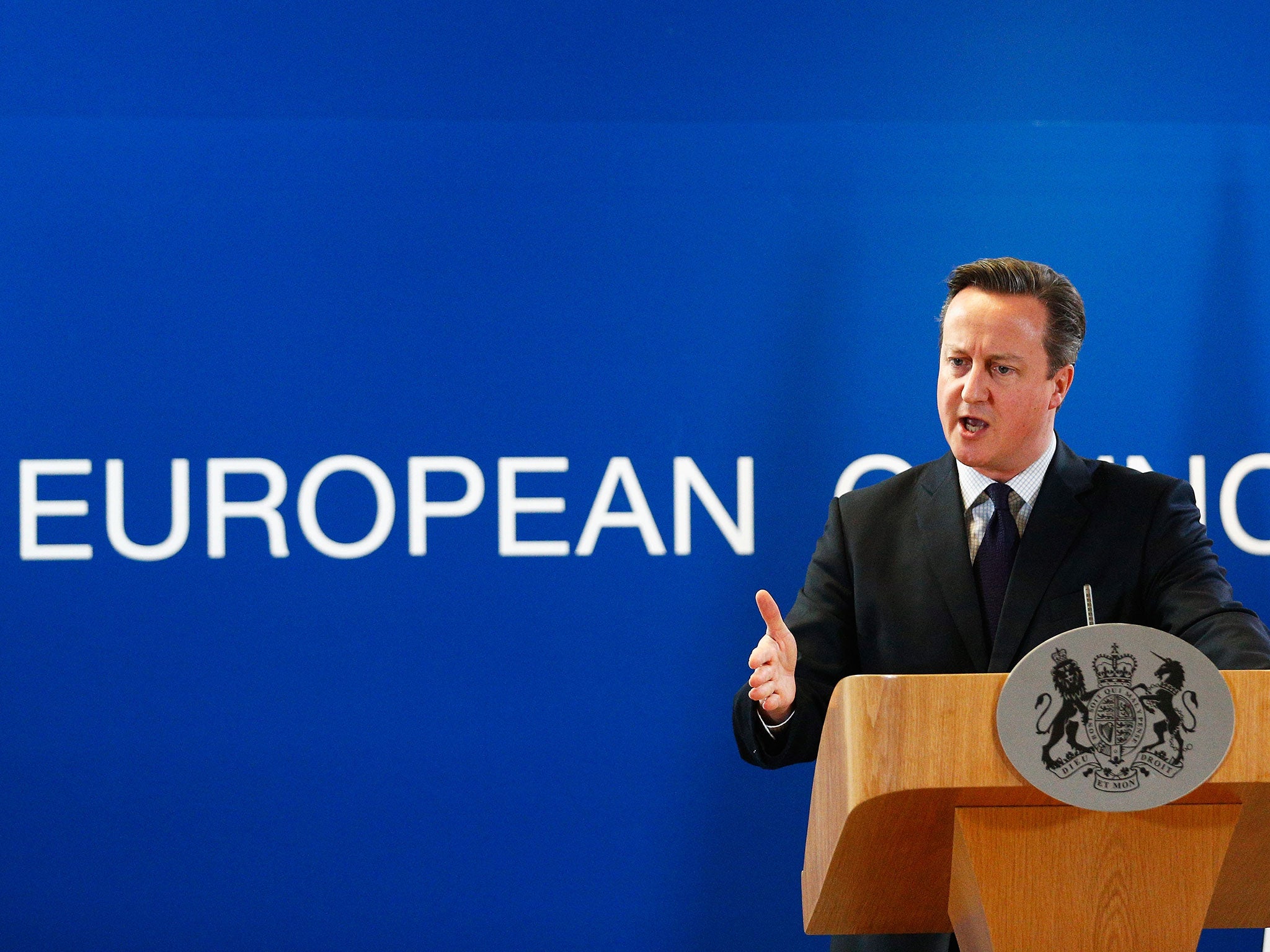The Remain campaign has the strongest suit in the Brexit battle, so why is it not showing its hand?
There’s the economy. There’s security. And there’s the fact that the UK may break up if we leave the EU


The case for Britain to remain in the European Union rests on three pillars: prosperity, security and the possible break-up of the UK if we quit. Those arguments are just as strong, if not stronger, than they were a year or two ago. But the campaign to keep Britain in the EU isn’t going well. Earlier this week, Stuart Rose, chairman of the Stronger In campaign, struggled to get the name of his own organisation straight.
Stronger In hasn’t fared too well in the battle of the statistics, either. Iain Begg, a pro-European economics professor at the London School of Economics, dismissed one of its central claims – that membership benefits the average UK family to the tune of £3,000 a year – as “spuriously precise”.
Meanwhile, the endless torrent of migrants entering Europe from the Middle East and further afield is playing into the Leave campaign’s hands. Eurosceptics have successfully managed to muddle the refugee crisis, which is having little impact on Britain, with free movement of people within the EU – which concerns completely different groups of people such as Poles and Italians. The Remain campaign has struggled to come up with any issue that resonates nearly as strongly.
The latest poll of polls has Remain on 51 per cent to Leave’s 49 per cent, according to What Britain Thinks. But things may be worse for the Remain campaign than those figures suggest, because the same bias in last year’s general election polls – in which Labour-leaning youths were over-represented – could be repeating itself. Young people are generally pro-EU but don’t tend to vote as much as older people.
The Remain campaign needs to get its messages across more effectively. The economy should be a strong suit. Even if it is hard to put a precise figure on what the EU’s membership is worth, quitting would be bad for jobs and pay. After all, we do nearly half our trade with the EU and, under all credible scenarios, this would be impaired by leaving. What is more, Leave campaigners struggle to say what “out” would look like. There’s a schism between free-marketeer and protectionist eurosceptics. Given the growing populist mood around the world, there is a risk, after a Brexit, that the nationalist little Englanders would gain the upper hand.
In the past, eurosceptics were enamoured of copying Norway or Switzerland, which have varying degrees of access to the EU’s single market without being members of the club. But the flaws in these models – still having to pay money into the EU budget, follow a lot of its rules and yet not hold any vote on what those rules are – have become increasingly apparent.
Norman Lamont tried another model earlier this week: Canada, which is close to clinching a free-trade deal with the EU. The former Tory chancellor, who was playing “Britain” in a war game on what would happen if we quit the EU organised by the Open Europe think-tank, argued that we should get a trading arrangement like Canada’s, souped up to give our largest industry, financial services, access to the EU’s single market. The people playing the other EU nations would have nothing of it. In fact, they took relish plotting how they might attract slices of the City of London’s lucrative business to their own financial capitals.
All of this doesn’t just mean a Brexit would be a leap in the dark; it suggests that the divorce could be acrimonious. At a time when the global economy is being buffeted, heaping on risk doesn’t look smart. As Mark Carney, Governor of the Bank of England, argued yesterday, Britain’s large current account deficit also makes it vulnerable if nervous global investors lose confidence.
The economy isn’t the Remain campaign’s only strong suit. Another is that exiting could lead to the break-up of the UK. Tony Blair yesterday argued plausibly that, if Britain votes to quit the EU, the Scots will vote to leave Britain. But perhaps the most powerful card for the Remain campaign is foreign and security policy. Isis is creating havoc in the Middle East and Russia is flexing its muscles, while the United States no longer wishes to be the world’s policeman.
This is a bad time to lose influence in foreign policy. If we went solo, we would have no vote in the councils of Europe. We would find it harder to co-operate on fighting jihadi terrorism. We already benefit from the European arrest warrant and access to the Schengen Information System which, among other things, carries data on 2,000 suspected EU citizens who have gone to the Middle East to join the jihad.
The EU is now strengthening its counter-terrorism policies by measures such as interconnecting DNA databases, keeping track of passengers’ air travel and swapping information on terrorist financing.
Although the EU might let us tag along, we would have precious little say over what policy to pursue. We would also have less influence with the US, for whom we would become less relevant. Our “special relationship” would become less special.
Meanwhile, our leaving could have far-reaching implications for the rest of the EU. An EU that unravelled in the wake of Britain’s departure – as Marine Le Pen, the leader of France’s National Front, hopes – would be even less able to help stabilise its neighbourhood. That would be bad for our security. On the other hand, if the EU formed a tighter bloc in response to our exit, that would marginalise us. It would be a sad end to hundreds of years of wars and diplomacy aimed at stopping the creation of a superstate on our doorstep.
The Remain campaign hasn’t yet made much of these security arguments. But we are still in the phoney war. If Mr Cameron can secure a deal to refashion Britain’s EU membership at next month’s summit, he is expected to throw himself into the campaign with zeal. The Prime Minister is also likely to argue strongly the foreign policy case for membership. Let’s hope that he will prove a more effective spokesman than Lord Rose.
Hugo Dixon is chairman of InFacts, a journalistic enterprise making the fact-based case for Britain to stay in the EU
Join our commenting forum
Join thought-provoking conversations, follow other Independent readers and see their replies
Comments